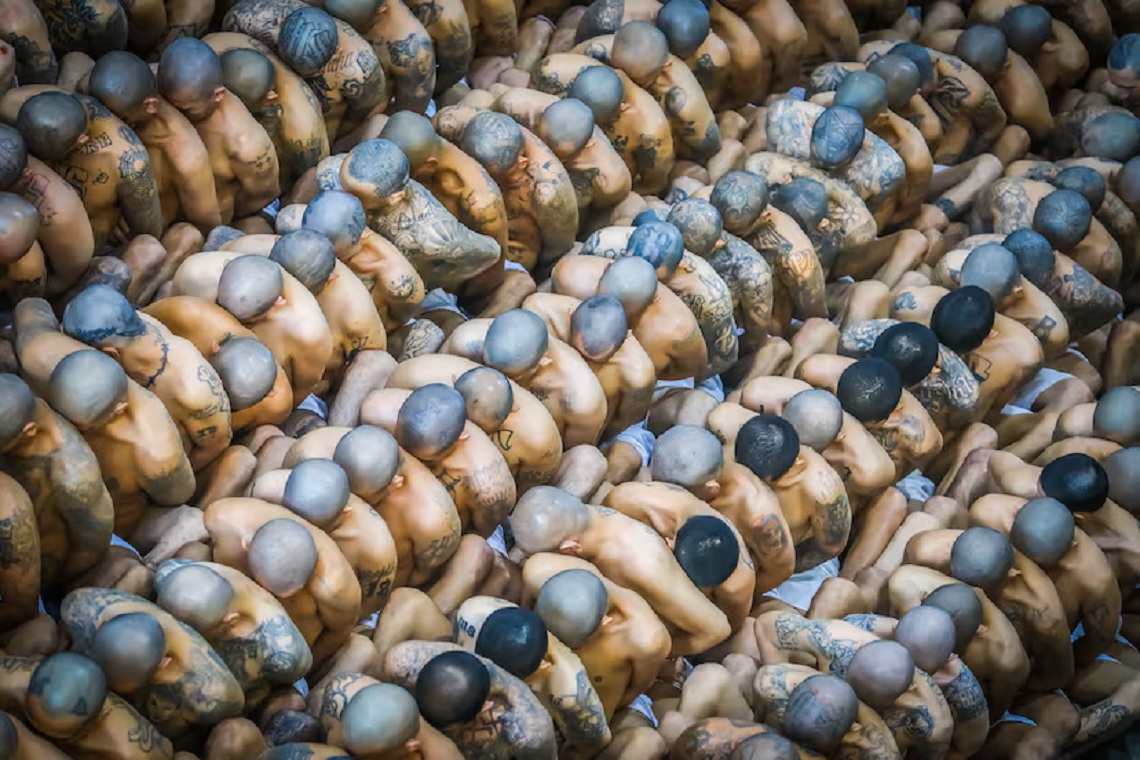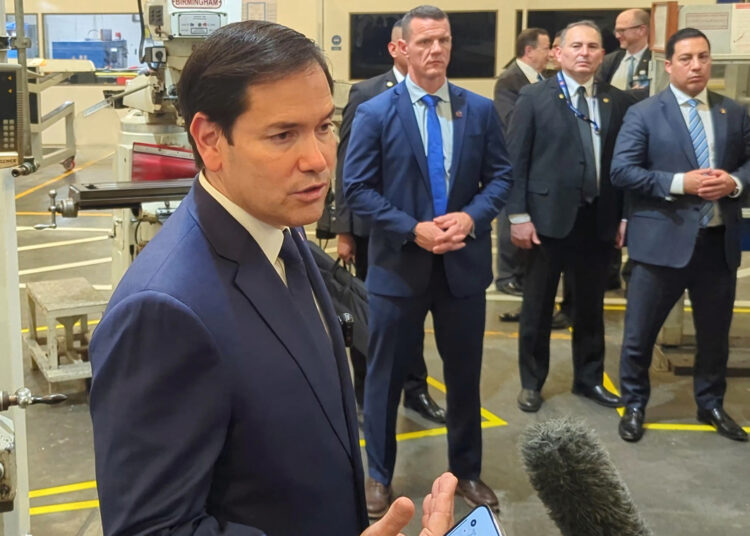In one of the surprises of his Latin American and first international tour, U.S. Secretary of State Marco Rubio announced this Monday that he is the new acting head of the U.S. Agency for International Development (USAID), promising to put an end to the “insubordination” in that federal entity.
“I am the acting director of USAID,” Rubio told reporters on his visit to El Salvador, noting that the level of ‘insubordination’ in that agency “makes it impossible to carry out some kind of serious review,” reported the French press agency (AFP).
“Every dollar we spend, every program we finance must be aligned with the national interest of the United States, and the USAID has a history of ignoring that and deciding that, somehow, they are a global charity separate from the national interest,” Rubio told the press accompanying him on his trip, according to a report by the Spanish news agency EFE.
The head of Washington’s diplomacy said he was “very concerned” about reports that USAID employees are “refusing to cooperate” with the new administration of Donald Trump investigating the profiles of each assistance program and the destination of the funds.
A pillar of Soft Power
Founded in 1961 by the administration of President John F. Kennedy, in FY2023 the agency distributed approximately $43.4 billion in aid, benefiting more than 180 countries in areas such as governance, health, and humanitarian assistance. Ukraine the top recipient with more than $16 billion.
“Thus, it is not only a humanitarian aid agency, but also a pillar of U.S. soft power, used to foster Washington’s relationships with communities around the world, noted an article on CNN’s Spanish-language website.
Salvadoran stopover
On the second stop of his first trip as head of US diplomacy, Rubio could communicate to President Nayib Bukele the possibility of El Salvador receiving deported criminals, given his prison experience with this type of population.
“Just a decade ago San Salvador was the crime capital of the world, and today it is one of the safest cities in the world,” Mauricio Claver-Carone, U.S. special envoy for Latin America, said recently, praising Bukele also as “a great ally on migration.”
The small Central American nation, where 83,000 people have been detained for alleged common crimes, received some $140 million in fiscal year 2023 from the United States to support various programs and so far, the Republican administration has respected the status that protects some 232,000 Salvadorans from deportation.

More than half a million Venezuelans in the middle of nowhere
Rubio’s efforts come as Trump ended the temporary protected status enjoyed by more than 600,000 Venezuelans in the United States, which prevented them from being deported to their home country due to Venezuela’s political crisis, according to Washington.
A US envoy met last week with Venezuelan President Nicolás Maduro and demanded that he receive the deported Venezuelans, including members of the Tren de Aragua, a Venezuelan-based criminal gang that Trump has designated as a terrorist group.
For its part, Panama, visited on Sunday by Rubio, also promised greater cooperation in the deportation of migrants from other nations, an effort that he hopes will be useful in lowering the tension caused by Trump’s threat to take over the Panama Canal by force.
On Sunday, on his way back to Washington from his private mansion in Mar-a-Lago, Florida, the president reiterated that he intends to “recover the Panama Canal, or something very big is going to happen”.
Before leaving for El Salvador, Rubio observed in Panama City a deportation flight of Colombians detained while crossing the Darien jungle on their way to the United States.
“If they reach the southern border of the United States, they will create serious problems for us,” he told reporters as Panamanian authorities loaded 32 men and 11 women onto the plane bound for Colombia, reported EFE.
Rubio’s tour, which ends on Thursday, February 6, still includes Guatemala and the Dominican Republic, with an agenda ranging from illegal migration, organized crime and drug trafficking to strengthening economic agreements in the region.










